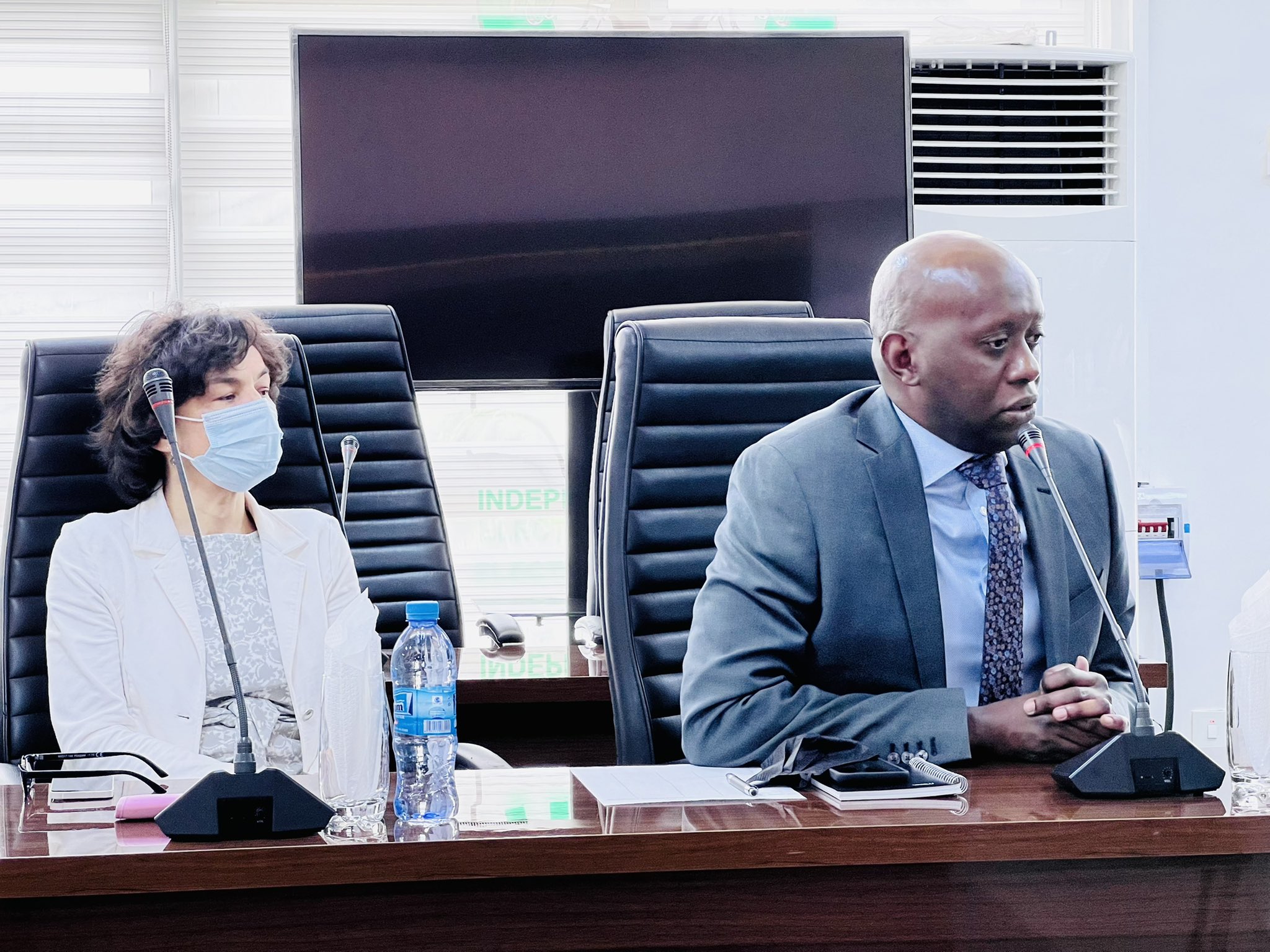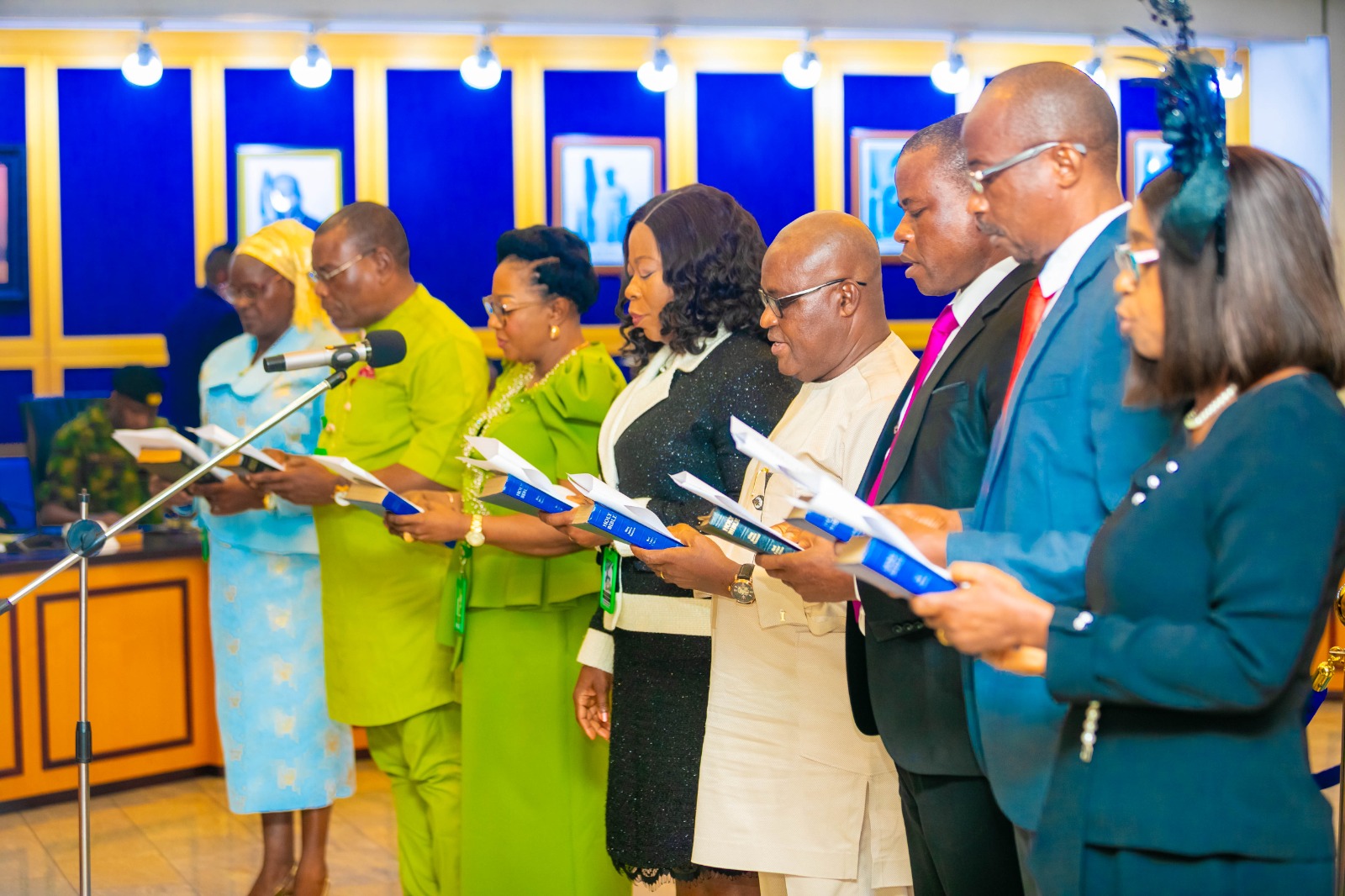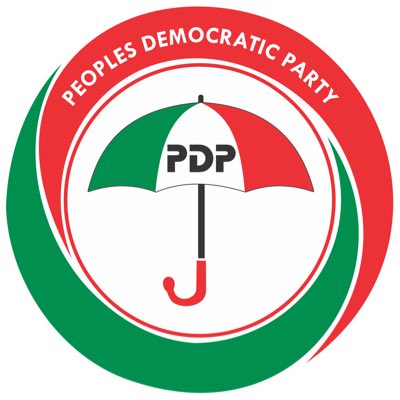News
N’Delta Leaders Insist On Resource Control, Self-Determination

Some leaders of the Niger Delta have demanded granting of self-determination to their region to take total control of its resources and end years of alleged exploitation, deprivation and slavery of their people in the Nigerian state.
The leaders, who lamented that the people of the Niger Delta had been talking and agitating for resource control and restructuring of the country through conferences but to no avail, said the time had come for them to take their destiny in their hands.
In a keynote address at a conference by the Niger Delta Alternative Convergence (NDAC) to endorse the eight-point demand in the “Niger Delta Manifesto for Socio-Ecological Justice” in Uyo, Akwa Ibom State, former Chairman, Editorial Board of The Guardian, Prof. G. G. Darah, said: “From the challenges we are facing in the Niger Delta region, we seem to assume that the Federal Government is on our side whereas the Federal Government is the number one enemy of the Niger Delta.
“Today, people are anxious to be the president of Nigeria because there is the Niger Delta oil for them to squander. What this means is that the political system is all organised for taking control of the oil money, to share it among the friends of the president. All the parties are organised gangs to loot and plunder the Niger Delta resources.
“That is the country we are in. Therefore, we must assume that whatever government that comes to office in 2023 will not be different from the past ones since 1960. Nigeria has been designed to steal our resources and share. They gather monthly in Abuja to share the money. All our presidents, now and past, occupied office for the purpose of plundering our resources, otherwise our own son would have done something. Jonathan, when he was president, had no capacity to touch any bad section of the constitution against the Niger Delta”.
According to Darah, “Nigeria exists today because of Niger Delta oil and Nigeria is the only country in the world that has colonised its people.
“Now, we are pleading that the Federal Government should implement the manifesto. We have to do it by ourselves because if you look at history, it is not today that our people have been fighting against injustice. Jonathan called for a national conference and all the issues raised could not be implemented. So, what we are doing now is the authentication of the national conference for Nigerian people.
“The structure of Nigeria is against us and to build a new Nigeria will take time. We need a Niger Delta that will be in charge of its own resources and aim to be a country of its own, a sovereign country. Some ethnic groups in the Niger Delta are bigger than some European countries and our ancestors in their grave will not forgive us that we succumbed cheaply. We are well populated”.
Prof. Lucky Akaruese of the Ishekiri nationality aligned with the position of Darah, noting that many countries of the world like East Timo and Indonesia, Singapore and Malaysia, Denmark and Norway, Yugoslavia and the Soviet Union that split into many countries are products of negotiations, so the Niger Delta and Nigeria cannot be an exception.
A prominent traditional ruler from Rivers State backed the demand for a sovereign state.
“I agree with Prof. Darah that we should clamour for Niger Delta Republic, and the manifesto we are signing today, we should speak with one voice. We have been talking and now it is only action that will bring result. There is nothing the Niger Delta has gotten without struggle.
“The manifesto will remain a document if we do not put it to action. The Pan-Niger Delta Forum (PANDEF) presented a 16-point agenda but only two were implemented. So, we need to take a deliberate action on some of the issues we raise here.”
The convener of NDAC and Executive Director of Health of Mother Earth Foundation (HOMEF), Comrade Nnimmo Bassey, said: “The convergence also aims to produce an inclusive Niger Delta Manifesto for Socio-Ecological Justice highlighting needed alternatives for transformation and social mobilisations for resource justice. It is hoped that NDAC will provoke a platform for convergence of communities in the region to galvanise action for needed changes for re-source access, including through demands for legislative changes, debates on the Petroleum Industry Bill and for critical attainment of re-source democracy – defined as the right of a people to live in harmony with nature and to retain a right to use, or not use, the gifts of nature.”
He stated that 64 years of oil extraction had brought untold misery and cut life abysmally low in the region.
“Things cannot continue this way. We have demands and resolves in the proposed Niger Delta Manifesto shared to delegates. Let’s all rise to be counted, demand that politicians declare their environmental plans before they gain our votes. Let us demand real climate action, including a halt to gas flaring and a restoration of our ecosystems. Let us demand action to stall the washing away of our communities. After 64 years of a nightmare, it is time to wake up, it is time to demand socio-ecological justice. We are not calling for charity, we are calling for justice”.
Former Governor of Akwa Ibom State, Obong Victor Attah, and the National Chairman of PANDEF, Senator Ibok Essien, clamoured for restructuring and total control of resources.
They pleaded with the people of the region to get their PVCs to vote people that will carry out restructuring of the country.
News
Ibas Inaugurates RSIEC, Service Commissions, Healthcare Board In Rivers …Charges Appointees To Embrace Principles Of Service

The Administrator of Rivers State, Vice Admiral (Rtd) Ibok-Ete Ibas, has charged newly appointed Board members to uphold the highest standards of discipline, competence, integrity, and unwavering dedication in their service to the State.
He emphasized that such commitment is critical to stabilizing governance, restoring democratic institutions, and advancing the principles of good governance in the State.
This was contained in a statement by the Administrator’s Senior Special Adviser on Media, Hector Igbikiowubo on Monday.
Ibas issued the charge on Monday while inaugurating the reconstituted Rivers State Independent Electoral Commission (RSIEC), Rivers State Civil Service Commission, Rivers State Local Government Service Commission, and the Rivers State Primary Health Care Management Board at Government House, Port Harcourt.
The Administrator urged the new appointees to embrace their roles with diligence, patriotism, and a commitment to transforming Rivers State through excellent service.
Addressing the Chairman and members of RSIEC, Ibas underscored their pivotal role in ensuring credible local government elections that reflect the will of the people.
“Your task is clear but demanding: to conduct free, fair, transparent, and credible elections at the grassroots level. You must resist bias, favoritism, and external interference while restoring public confidence in the electoral process,” he stated.
“The independence of your actions is crucial to sustaining peace, stability, and grassroots governance. I urge you to act with fairness, impartiality, and professionalism—even in the face of difficult choices,” Ibas added.
The Sole Administrator also charged the Rivers State Civil Service Commission on the need to eliminate mediocrity and foster a culture of excellence through merit-based recruitment, training, and promotions.
“The civil service must transition from favoritism to competence, integrity, and accountability. Your commission will lead reforms, including digital transformation and standardized practices across ministries, departments, and agencies,” he said.
He disclosed that extensive training programmes are underway, with a committee set up to overhaul the public service framework for greater efficiency.
Meanwhile, Ibas urged the Rivers State Local Government Service Commission to ensure professionalism and discipline in local government administration.
“As the closest tier of government to the people, you must drive reforms that insulate the system from politics and mediocrity. Your mandate includes merit-based recruitment, training, and enforcing standards for effective service delivery,” he stated.
In the same vein, the Administrator charged the Rivers State Primary Health Care Management Board with revitalizing healthcare delivery across the state’s 23 local government areas.
“Primary healthcare is the foundation of a sustainable health system. Your board must ensure facilities are adequately staffed, equipped, and operational focusing on maternal health, immunization, malaria control, and community health services,” he said.
He emphasized data-driven operations, incentives for rural health workers, and restoring the referral system to improve healthcare access.
He also assured the Board of sustained government support, including funding, for the effective discharge of their mandates but warned that board members would be held accountable for their performance.
The newly inaugurated members include: RSIEC: Dr. Michael Ekpai Odey (Chairman) with Prof. Arthur Nwafor, Prof. Joyce Akaninwor, and others as members.
Civil Service Commission: Dr. Livinus Bariki (Chairman), Amb. Lot Egopija, Mrs. Maeve Bestman, and others.
Local Govt. Service Commission: Mr. Isreal Amadi (Chairman), Rear Adm. Emmanuel Ofik (Rtd), Dr. Tonye Pepple, and others.
Primary Health Care Board: Dr. Dawari George (Chairman), Dr. Chituru Adiele (Executive Director), Prof. Kaladada Korubo, and representatives from key ministries.
News
Rivers PDP Debunks Sale Of LGA Election Forms

The Publicity Secretary of the Peoples Democratic Party (PDP) in Rivers State, Dr. Kenneth Yowika, has debunked claims that the party has commenced sale of forms for chairmanship and councillorship elections across the 23 local government areas of the state.
Yowika made the rebuttal in a statement made available to newsmen on Wednesday, describing the publication on the social media as baseless and untrue.
He urged members of the PDP to disregard the claim, saying that official communication regarding the sale of forms would be disclosed through the appropriate channels.
“With reference to information trending on social media, it has been falsely claimed that the sale of forms for Chairmanship and Councillorship elections in the 23 Local Government Areas (LGAs) of Rivers State will begin soon.
“However, the party has firmly denied these rumours, stating that they are baseless and untrue.
“The party has its own established methods of reaching out to its numerous supporters.
“The People’s Democratic Party, a law-abiding organisation, will patiently await the release of guidelines from the recently inaugurated Rivers State Independent Electoral Commission (RSIEC) before considering any sale of election forms.
“The PDP is urging its members to remain calm as official communication regarding the sale of forms will be disclosed through appropriate channels,” the statement read.
Enoch Epelle
News
South-South contributes N34trn to Nigeria’s economy in 2024 – Institute
Prof. Pius Olanrewaju, President of the Chartered Institute of Bankers of Nigeria (CIBN), has stated that the South-South region contributes N34 trillion to country’s economy in 2024.
He made the remark at the South-South Zonal Banking and Finance Conference in Calabar, yesterday.
He spoke on the theme, ‘’Building An Inclusive South-South: Economic Diversification as a Catalyst For Development.’’
Olanrewaju, who quoted the data from the Cable Data Index, said the feat was more than 21 per cent of Nigeria’s real Gross Domestic Product (GDP).
The president described the growth as ‘’ impressive,’’ saying that it was not driven by oil alone but significant expansions in trade, services, and the creative industries.
According to him, to fully harness this potential, coordinated financial, technological, and policy support is essential.
“As we work to reposition the South-South for broad-based prosperity, the financial system must play a central role, not merely as a source of capital, but as a catalyst for innovation, ideas incubation, and inclusive economic growth.
“This conference, therefore, provides a strategic opportunity for stakeholders to reimagine the South-South economy, not merely as a resource belt, but as a region of diverse capabilities and resilient enterprises.”
Olanrewaju added that Nigeria must move beyond old models and chart a new course for the development of the South-South region, where financial institutions and stakeholder collaborate to diversify the economy for shared prosperity.
He, however, commended Gov. Bassey Otu for his pledge of land for CIBN Secretariat in Cross River and being the first sitting governor to willingly undergo and complete the Chartered Bankers Programme.
On his part, Gov. Otu said that the conference discussion on the economic diversification in South-South region was timely against the backdrop of global trade and economic volatility that was affecting the nation’s economy.
Represented by his deputy, Mr Peter Odey, Otu said the South-South region must now act with urgency to diversify its economy while leveraging its shared natural endowment in agriculture and extractive resources.
“This conference must help develop tailored financial solutions that reflect the unique strengths and realities of states like Cross River in the south-south.
“Diversification should be evidence-based and must be backed not just by financial advice but project focused financing and real investment support,” he noted.
He said that Cross River had taken the bold step to invest in its agricultural sector by launching an Agro processing hub.
Otu further said that the state had invested in aviation by acquiring more aircrafts for Cally Air, construction of the Bakassi Deep Seaport and injecting N18 billion in its tourism sector.
Similarly, Mr Tolefe Jibunoh, Cross River Branch Controller of the Central Bank of Nigeria (CBN) said that the region was blessed with natural resources, cultural diversities and immense human potentials.
Jibunoh, who was represented by Mr Segun Shittu, Head, Currency Control Office, CBN, Calabar, noted that strategic diversification could unlock unprecedented opportunities for growth in the region.
He added that the CBN remained steadfast to maintain monetary possibilities and promote a sound financial system as a catalyst for sustainable economic development for the benefit of all.
-

 News21 hours ago
News21 hours agoNAF Disowns Recruitment Adverts, Says It’s Fake
-
Rivers22 hours ago
Okrika Administrator Seeks To Connect Okujagu Ama To National Grid … Donates 30 Life Jackets To Okujagu Ama Boat Drivers
-
News19 hours ago
Rivers Chief Judge Frees 21 Awaiting Trial Inmates
-
Politics21 hours ago
Natasha’s Counsel Writes Senate Over Court Judgment
-
Nation20 hours ago
NIPR Practitioners Urge To Go Beyond Traditional Media Relations To Strategic Leadership Functions
-
Politics22 hours ago
Bayelsa APC Hails Late Buhari As Change Agent In Nigerian Politics
-
News19 hours ago
South-South contributes N34trn to Nigeria’s economy in 2024 – Institute
-
Niger Delta21 hours ago
Police Rescue Kidnap Victim, Recover Pistol In A’Ibom

